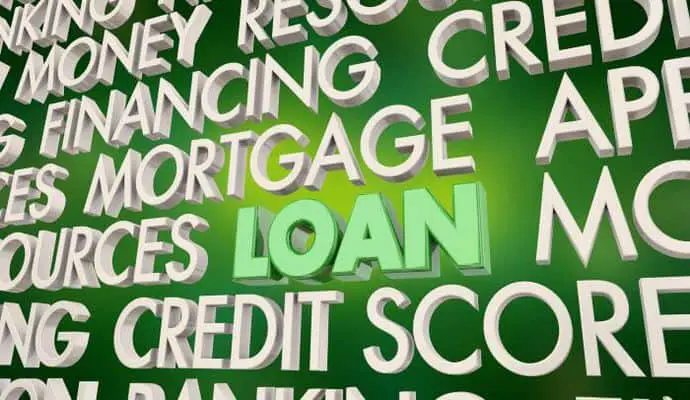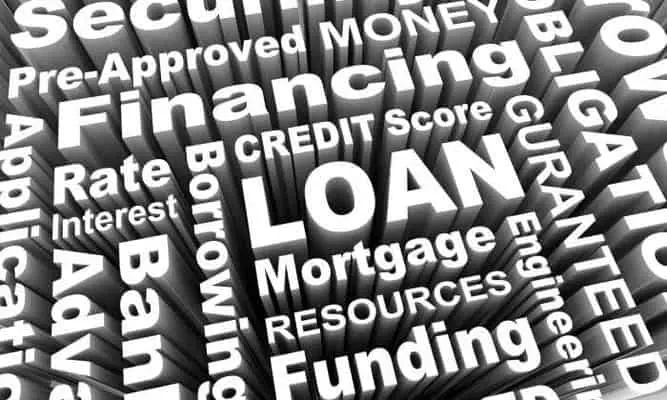Basic Mortgage Terminology and definitions
A house to many people is the biggest asset that they will ever own. Therefore, it’s critical to learn the real estate lingo to help you smoothly navigate the real estate purchasing, refinancing, and selling process. It also facilitates the entire interaction with your realtors, mortgage brokers, banks, and allows you to make well-informed decisions. Additionally, knowing important mortgage terms and definitions boosts your confidence and empowers you to ask the right questions.
Here are the essential mortgage vocabulary and definitions that you will likely encounter:
Amortization
The process of the amount of outstanding loan balance over time through equal regular payments, usually monthly. A portion of each payment is for interest while the remaining amount is applied almost exclusively towards the principal balance.
Appraisal
A written estimate used to determine the value of your property based on information on recent sales of similar properties.
Annual Percentage Rate (APR)
The yearly cost of a mortgage including interest and other expenses or charges such as private mortgage insurance and points expressed as a percentage.
Bankruptcy
A scheme used by individuals to evade from paying due debts and/or liabilities when they are no longer able to.
Chapter 7 bankruptcy is a liquidation bankruptcy, whereby an individual sets himself frees from most of his/her debts.
Chapter 11 is a form of bankruptcy that allows one to negotiate with their lenders to adjust the terms of their debts and create a plan for repayment without necessarily having to sell their assets.
Assumable and non-assumable mortgage
A loan that is transferrable to another party without changing its terms. For instance, sells their home and have an assumable loan, they can transfer that loan to the new owner while maintaining the same interest rate and repayment schedule.
A non-assumable loan does not allow the buyer to “assume” all outstanding payments after the sale of a property.
Title
The official written document used as evidence of the right to own property at a specified time.
A clear title is a title that does not have any type of lien or levy from that would bring up any question in regards to legal ownership.
Final Sale, Conditional Sale
The final sale is a sale in which the customer is not given the right to return it in case of a change of mind.
In a conditional sale, the seller transfers the possession of an asset to the buyer, but it retains the title and right of repossession until he receives full payment on agreed terms.
The seller may repossess it in case the buyer defaults in payment.
Collateral, Collateralized Mortgage Obligation
An asset, such as a car or a home, used as security for the repayment of a loan. The borrower stands a risk of losing the asset in case of a default in payment of the loan.
A collateralized mortgage obligation (CMO) is a type of mortgage-backed security that constitutes a pool of mortgages that are brought together and sold as an investment.
Chain of Title
This is the sequence of historical documents relating to the transfer of title to a property, starting from the earliest to the most recent document.
Clear to Close
Clear to close is the point whereby the underwriter has reviewed and given approval on all the documents required to fund your loan and the mortgage lender is now ready to close on the loan.
Closing Costs
The fees payable by the borrower after the purchase and refinancing of a property. Costs incurred include the appraisal fee, title insurance, title search, survey fees, underwriting, processing, and credit report charges.
Borrower, Co-borrower
The individual to whom a loan/mortgage is extended for the purchase of a house or property. He or she is responsible for all payments and fees regarding the loan over the period of the loan.
A co-borrower is any other borrower whose name is featured on loan documents and whose credit history and income are used to qualify for the loan. Both parties involved in this agreement have an equal obligation in repayment of the loan. Both their names are included in the property’s title.
Interest rate, Compound Interest
The percentage rate, fixed or variable, that is charged by a lender on borrowed money. Compound interest is interest paid on the principal balance and on the accrued and unpaid interest.
Construction Loan
A type of mortgage that is paid periodically by the lender to the builder to cover for the cost of a home or real estate project during the construction period.
Debt Service, Debt-to-Income Ratio
The cash required to cover the repayment of principal and interest charged on a debt for a specified period.
The debt-to-income ratio is the ratio calculated by dividing a borrower’s aggregate monthly debt by their total monthly income, usually expressed in percentage.
Deed, Deed of trust, Deed in Lieu of Foreclosure
A legal document, containing the description of a property, whose ownership has been transferred one party to another.
Deed of trust an agreement used in many states in place of a mortgage to pledge property as security for a loan.
Deed in Lieu of Foreclosure allows for the transfer of all interest in real property from a mortgagor to the mortgagee to satisfy a defaulted loan and forgo foreclosure proceedings.
Default
Failure to meet contract obligations such as making mortgage payments on a loan on time. A mortgage is normally considered to be in default when the expected payment exceeds 30 or more days past the due date.
Down Payment
Money that is paid for a house from the buyer’s own funds at closing in order to qualify for the mortgage. The down payment marks the difference between the purchase price and the mortgage amount.
Equity
The difference between the current monetary value of a property and the mortgage loan balance.
The equity of a property increases over time as the value of the property increases and loan amount decreases.
Escrows
A third-party agent, usually neutral, that receives and holds money or documents until certain specified conditions are met. This can either be an attorney or a title company, depending on state regulations.
Fair market value
The highest expected selling price of a home is usually determined by an appraisal.
Fannie Mae and Freddie Mac
Fannie Mae (FNMA) – The Federal National Mortgage Association is a government agency that buys and sells residential loans. It is the nation’s largest supplier of home mortgage funds.
Freddie Mac is a government-sponsored enterprise that is responsible for buying and securitizing mortgages for resale in the secondary market.
FHA Mortgage
A mortgage, also known as government loan, that is insured by the Federal Housing Administration (FHA) that provides unique, more affordable options and benefits not available through conventional funding.
FICO Score
An acronym for Fair Isaac Corporation, which creates the mathematical formulas used to generate credit scores for evaluation of credit risk. FICO scores range between 300 and 850. A higher FICO score represents a lower credit risk presented by a consumer.
Fiduciary
A person or organization that takes the place of another person or persons in the role of managing assets.
Foreclosure
A legal procedure by which a lender sells property held as security a borrowed loan to cover for repayment of a borrower’s loan in case they default or fail to meet all required terms.
Judicial Foreclosure
A court procedure that lenders can use to obtain a clear title to a property under a defaulted real estate loan.
Gross Income
Total income before deduction of taxes or expenses.
Net Income
Income expected after taxes and expenses have been deducted.
Fixed-Rate
An interest rate that is predetermined and fixed for the entire term of the loan
Home Equity Loan
A loan secured by the equity in a property. These are sought for a variety of purposes, including making major purchases, home improvements as well as debt consolidation. Interest paid is usually tax-deductible.
Jumbo Loan
This mortgage, also known as a non-conforming loan, exceeds the limits set by Fannie Mae and Freddie Mac. They usually bear additional fees and restrictions because of their large loan amounts.
Legal description
The written geographical description of the property (metes and bounds) as described in the land register.
Related post: Insurance 101: Understanding All Insurance Terms and Definitions
Letter of intent
A document that outlines the agreement between two or more parties which they intend to validate through a legally binding agreement.
Loan Estimate
This is a document that outlines the costs linked to a mortgage, inclusive of the lender fees, interest rate, title charges, and insurance. It is a government requirement that lenders issue their borrowers with a Loan Estimate within three days after receipt of the loan application.
Loan Originator
A fee charged by the lender for the processing of a mortgage expressed as a percentage of the loan, or points, which caters for the work of evaluation and processing of the loan.
Loan Program
A program that offers funds to borrowers to purchase real property or capital for commercial real estate.
Loan to Value Ratio
The percentage of the property value borrowed. (Loan amount/property value=LTV).
Mortgage Payoff Statement
The bank charges interest until the payoff date and fees may be involved, which can make the amount needed for payoff differ from what your monthly statement of the debt owed. The payoff statement, therefore, specifies the exact amount needed on the date one intends to retire the mortgage.
Mortgage Insurance Premium PIM
The insurance purchased by a borrower to insure against default on an FHA loan.
One Year Adjustable-rate mortgage
A one year adjustable-rate mortgage is one whereby, the initial interest rate is normally fixed for the first year, then becomes adjustable once every year for the following years.
Payment cap
A pre-determined limit on the rate by which a monthly payment can increase at any given time regardless of increases in the interest rate.
Points
An amount a borrower pays to the lender at closing, to lessen the interest rate. Every point is equal to 1 percent of the loan amount.
Pre-Paids
Expenses such as taxes and insurance, which are usually paid in advance of their due date, including their closing.
Pre-qualified vs. Pre-Approved
Pre-qualification is the process by which a borrower personally provides financial and other relevant information so that lender can preliminarily determine how much he or she may be allowed to obtain for the purchase of a home.
Pre-approval is a process whereby the borrower authorizes the lender to pull and review a copy of his credit report. The details of the report confirm the borrower’s existing debts and payment history while the credit score based on the report often influences the interest rate offered. The borrower also needs to submit a detailed application that includes information about their finances as well as work and income history.
Related to mortgage terms and definitions: 60 Essential Mortgage Dictionary of Terms in Canada
Principal Payment
The total amount of debt, without interest, left on a loan.
Private Mortgage Insurance
Insurance issued on a conventional loan that a buyer purchases when a down payment is below 20 percent of the purchase price so as to protect the lender against default.
Processor
Lender fees charged to cover the costs of processing a loan or mortgage request, usually included in closing costs.
Rate Lock
A commitment that a lender issues to a borrower offering a guarantee of a specific interest rate for a particular period of time.
Reverse Mortgage
A type of mortgage designed for older consumers that allows them to access home equity in cash payments, frees up money they may use for other important costs or to make necessary home repairs.
The homeowner’s equity is gradually drawn down by a series of monthly payments from the lender to the homeowner. The loan balance is due at the end of the loan period, or upon the death of the homeowner, and is usually settled by the heirs who sell the property to meet the outstanding obligation.
Seller Financing
A real estate agreement whereby the seller takes charge of the mortgage process in place of a financial institution.
Title Insurance
Insurance is taken out on the property title that protects both the borrower and lender against loss in the event of a dispute over property ownership.
Truth in Lending
A written contract issued by a lender to a borrower after application, containing disclosed information on the terms of a mortgage (including APR and other charges).
VA Mortgage
A government-backed mortgage loan supported by the US Veterans Administration.
Variable Rate
An interest rate that changes periodically, usually in relation to an index such as the prime rate or other criteria.
Underwriting
The process of assessing the risks involved in a particular loan and determining suitable terms and conditions for the loan.
USDA Mortgage
A mortgage loan offered to rural property owners by the United States Department of Agriculture.
Short Sale
An alternative of a foreclosure. If a homeowner is unable to pay a mortgage loan and their home is lower in value than their debt, a short sale will allow them to sell the home to pay off the loan. In this case, the lender accepts to receive an amount less than that owed, provided there is evidence of financial hardship.
Related investment terminology you must know: 58 Key Investment Terminology You Should Absolutely Know
Conclusion for mortgage terms and definitions
It is very important to be an educated or well-informed buyer when it comes to real estate purchasing. There are basic common mortgage terminology and definitions that are recommended to know when dealing with banks, brokers, and realtors.
Below are the most common questions you need to ask your bank or realtors when purchasing
How long are mortgage terms?
What is the most common mortgage term?
What are the types of mortgage loans?
How does a mortgage work?
You may also like the following posts:
- Financial Goals & Objectives – How To Set Financial Goals
- 15 Proven Strategies To Pay Off Your Credit Card Debt Fast
- A Simple Guide to Credit Report vs Credit Score explained
- Insanely Easy Ways To Get A Free Credit Report
- Drowning In Debt: The Definitive Guide To Debt Management & Paying Debt Off
- How does Consumer Credit Counseling Services Help to Tackle Credit Problems
- The Practical Guide to Purchasing Your First Investment Property
- Renting vs. Buying a House Debate: What’s Best For You?



































2 thoughts on “70 Basic Mortgage Terms and Definitions to Know Before Buying a Home in the States”
Pingback: A Super Simple Beginner's Guide to Financial Literacy and Why Its Important - Investadisor
Pingback: 89 Key Bank Terms & Definitions You Need To Know Right Now - Investadisor